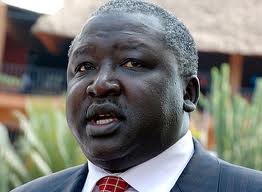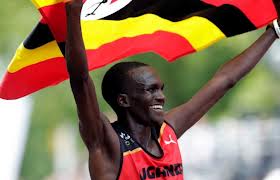Lobby, Speke Resort Munyonyo, August 8. There is a silence in the final declaration of the “extra-ordinary summit” of the Great Lakes as the curtains came down on Wednesday evening. It was not the departure, without much fanfare, of the Presidents. This summit was not big on delegations. The last time I was here for a large summit was the African Union one, one of the last that Libya’s Muamur Gadaffi attended- rock star style with bulky guards wearing sunglasses. Indeed Malawi’s Bingu Wa Mutharika and Ghana’s Atta Mills, whose funeral starts today in Accra were alive. Then a circus atmosphere seized this resort with rough hands choking it with the extravagance of ceremony and pomp that caricaturize the African big man.
When this conference started, its host Museveni started by rejecting the mandatory “Opening Ceremony” preferring to usher the President’s especially the two men who caused this meeting Messrs Kabila and Kagame straight to the business table.
However as the convoys of the two sped away to Entebbe airport via the “happy district” of Kabalagala and Kasanga which line the way to this Lakeside resort, a louder silence could be found in the final “declaration” of the “Heads of State and Government of the Member States of the International Conference on the Great Lakes Region on the Security Situation in the Eastern Democratic Republic of Congo”. That silence is the cold shoulder to the United Nations family that the declaration serves. Not once was the UN mentioned in the declaration even if newspaper stories will background the summit on the kerfuffle kicked up by the UN Group of Expert report on the alleged support given to the M23 rebellion by Rwanda. The symbolism probably will not go unnoticed.
While saying that the meeting was held in a “convivial fraternal and constructive atmosphere” the declaration also states that the Presidents and their governments were determined to seek “home-grown solutions”.
The first in sight appears to be the “lull in fighting” in the DRC that the conference is taking credit for. A copy of the document is here.Kampala Declaration August 2012
Perhaps it is good news that a political end to the fighting now spreading around Goma is being managed by the camp fire atmosphere I heard was the case in the closed door meetings.
I run into Uganda’s Foreign Minister Okello Oryem outside the hotel and when he downplayed the issue of a regional military force.
“ This regional force is something [the media] was talking about,” said he said (Oryem is the son of the late Gen Tito Okello Lutwa whose short lived government Mr. Museveni overthrew in 1986 after misdirection that were the Nairobi peace talks). He said a ceasefire and a continual engagement supported by Special Envoys would be the next steps. To translate, Special Envoys like ex-Presidents Olesegun Obasanjo or Benjamin Mkapa (who may play this role) continue the candid conversations that Presidents have. It’s a peerage arrangement.
A word on conflicts, summits and the work of this peerage.One working theory that has served me well in analyzing the currents in the Great Lakes has been that where rebellions are part of a proxy war of sorts, agreements between the principals of such a conflict effectively demobilizes their agents.
This was certainly true for the Lord’s Resistance Army when in 2005, the Comprehensive Peace Agreement for a while rendered them without a client causing their departure from Northern Uganda into Eastern Congo.Seen this way, long-term peace in Congo’s many warring regions may well be seized by agreements across the border. Indeed a small window of opportunity remains for Kinshasa. Its most feisty neighbors are run centrally by muscular Presidencies. So summits and one-on-one meetings are where agreements are struck and the tide of events affected. This may lead to positive forecasts for the situation in the East.
One interesting aspect of this summit has been talking to fellow journalists about their stories. Since Rwanda’s rebuttal fewer stories have emerged on the Rwanda-M23 affair that have departed from frame of the nasty neighbor causing havoc. I suspect despite this summit being a diplomatic breakthrough, perhaps even fewer stories will be written because good news does not sell well. This merits another post but one positive item in the declaration, which is odd even in the world of African solutions, is a million dollar Trust Fund that the Ugandan government has set up for the victims of the conflict in DRC.
One of my disappointments since this rebellion took hold and spewed refugees (and possibly Ebola) across the border was that no senior Rwandan or Congolese leaders had gone to commiserate with the victims. Even the Rwandan Foreign Minister who is in town still may not make the short trip to the border.
No one says African diplomacy should be callous. But then.










